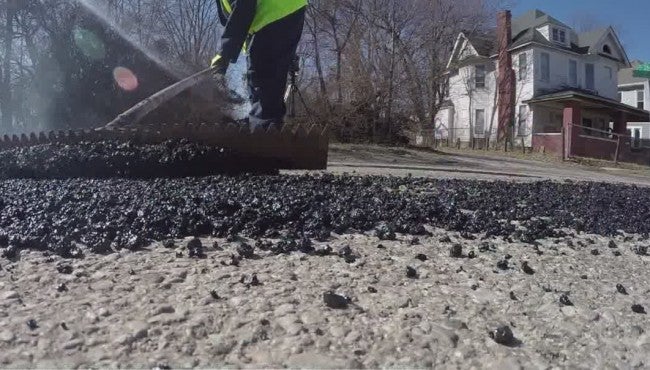Indy Public Works committee sends $14.5 million for potholes to full council vote
INDIANAPOLIS (WISH) — The Public Works Committee of the Indianapolis City-County Council on Thursday night approved a proposal to provide nearly $14.5 million in additional funding to repair the city’s streets.
More than 50 people were in attendance at the committee meeting; the committee’s approval sends the proposal on to a full council vote, slated for March 12.
The funds would go toward workers (including contractors), supplies and equipment for this year’s second “pothole blitz,” which began on Monday.
Of the $14.5 million, $13 million would come from the City Rainy Day Fund and go to the General Transportation Fund, while the other $1.45 million would move from the Rebuild Indy Fund, from projects that are under budget, to the Capital Asset Development Fund.“You cannot continue to travel on these roads the way they are right now,” said Steven Quick, the AFSCME Local 725 president, which represents some of the workers fixing the potholes. “Damaging your cars tearing them up whatever you have to do something.” The department says it will not deplete the rainy day fund, so if there is an emergency the city has more than $20 million still. The hope is the weather will not fluctuate as much so the work to fix the roads will last longer than the last round of treatment. But there’s no guarantee mother nature will cooperate, and it could leave the city scrambling for more money. “It depends that’s a process we’ll have to go through like we did for this,” said Councilor Zach Adamson, when asked about that prospect.Council President Vop Osili said Wednesday night the hope is the streets will be easier to drive on after the ramped up work, which is expected to last about a month. But a larger problem looms. Councilor Jeff Miller noted public works gets $88 million to fix streets but needs $177 million a year to do the job. He said he’s afraid the hundreds of millions needed to fix the streets will only grow. “We are currently looking for additional revenue sources to maintain the roads but we have a deficiency,” said Adamson. “We have a missing segment of revenue that we don’t have to address an issue.” Adamson said the city is limited in how to raise that money. The city is looking at whether they’ve taxed the max for car registration and licenses. Adamson said any other option would have to come from the state. Those options could include a gas tax or some sort of commuter tax, where people who work in Indianapolis but live outside the city would pay a percentage of their income tax to Indianapolis. The city said there are about 200,000 daily commuters. Options like a tax would require action from the state, however, and city officials noted Thursday that it was unlikely to happen this session.
